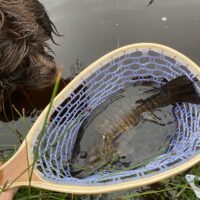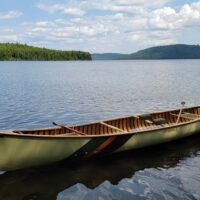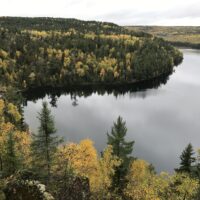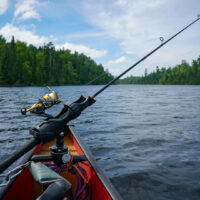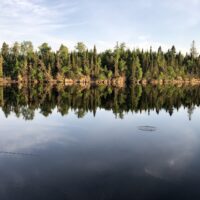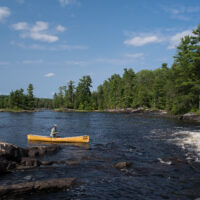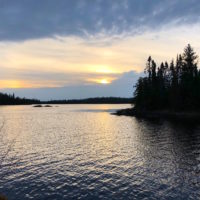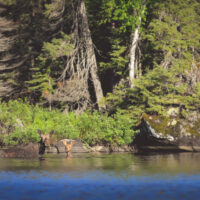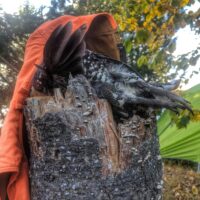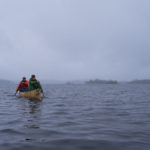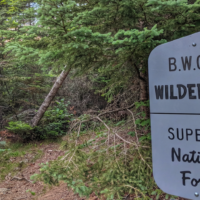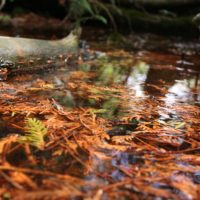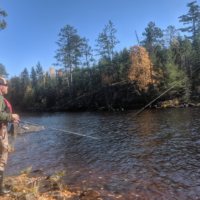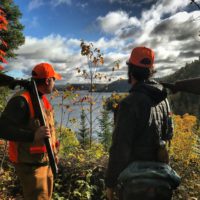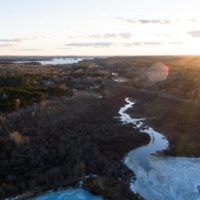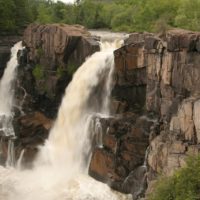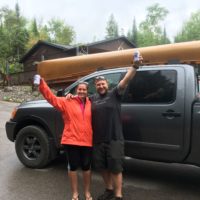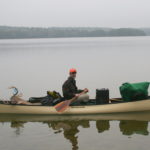Legislation Reversing BWCA Protections Passes U.S. House
May 3, 2024 11:16 amOn Tuesday, April 30th, despite our efforts in Washington D.C., the U.S. House passed H.R. 3195, The Superior National Forest Restoration Act, which reverses critical Boundary Waters protections. In two days, Sportsmen for the Boundary Waters met and touched base with nearly 70 House offices to express our opposition leading up to the vote.
H.R. 3195 rescinds Public Land Order 7917, reinstating mineral rights and leases to companies like Twin Metals, which has proposed a sulfide-ore copper mining project in the sensitive watershed of the Boundary Waters Canoe Area Wilderness.
Not only does H.R. 3195 reverse the 20-year mineral withdrawal announced by the Department of the Interior in January of 2023, but it also extends mining prospecting permits and additional leases, approves mine plans on an accelerated timeline, and forbids judicial review of leases and prospecting permits. These actions would have severe and irreversible consequences for the Boundary Waters and surrounding regions.
“Achieving monumental federal protections from copper-nickel mining in the Rainy River Watershed in 2023 was the most significant step taken in decades to protect the Boundary Waters Canoe Area Wilderness for future generations,” said Lukas Leaf, executive director at Sportsmen for the Boundary Waters. “HR 3195 unravels those protections, directly threatening our cherished outdoor traditions in Northeast Minnesota, again making the Quetico-Superior region vulnerable to toxic mining practices. This legislation flies in the face of those who love clean water, wildlife, and the world-class fishing and hunting opportunities the Boundary Waters provides. Now is the time to take action and support our work to ensure this legislation never sees the light of day in the U.S. Senate.”
This legislation sets a perilous precedent for our treasured wild places. It directly contradicts the pressing need for Boundary Waters protection from proposed sulfide-ore copper mining in its watershed. This type of mining upstream of the Wilderness jeopardizes fish, wildlife, downstream small businesses, and opportunities for future generations to enjoy the Boundary Waters. The Boundary Waters is not just the nation’s most visited Wilderness Area, it is a unique destination, the economic backbone for Northeastern Minnesota, and an irreplaceable part of Minnesota’s outdoor heritage.
Unlike Minnesota’s iron-ore and taconite mines, sulfide-ore copper mining threatens fish, wildlife, water quality, and world-class camping, paddling, fishing, and hunting opportunities in one of our country’s prized areas. Now is the time to support our work to stop this dangerous legislation in its tracks. Thankfully, MN Senator Tina Smith has recently stated her support for ensuring a companion bill, which currently does not exist, never passes the Senate.
“The Boundary Waters are some of the cleanest waters on Earth. They’re one of America’s greatest wilderness areas, and people everywhere cherish them. I support mining, but not here,” said Senator Tina Smith. “The Republican lead House passed a bill overturning protections for this precious area. I’ll fight to make sure it never passes the Senate.”
And ahead of the floor vote earlier this week, the White House issued a statement opposing the bill.
“The Administration strongly opposes H.R. 3195, which would undermine decades of local efforts to protect the pristine Boundary Waters Canoe Area Wilderness – a spectacular network of rivers, lakes, and forests that comprise the most heavily visited wilderness in the United States – from pollution from mining in its watershed. Responding to broad-based concerns regarding the potential impacts of mining on the area’s water, fish and wildlife, Tribal and treaty rights, and robust recreation economy, the Secretary of the Interior issued Public Land Order 7917, withdrawing approximately 225,504 acres of National Forest land lying upstream of the Boundary Waters Canoe Area Wilderness from disposition under the mineral and geothermal leasing laws for a 20-year period, subject to valid existing rights. This action helps protect the wilderness and watershed from adverse impacts of new mineral exploration and development, protects the area for future generations, and ensures the viability of the strong outdoor recreation economy.
H.R. 3195 would nullify the Administration’s actions by directing the Secretary to reopen the area to mineral exploration and development, fast-track environmental reviews for mining, and exempt leases and permits from judicial review – jeopardizing some of our nation’s most cherished natural treasures and undermining the scientific and public process that informed the withdrawal that is currently in place. The Administration strongly opposes this bill.”
Our work now begins to ensure that a companion bill is not introduced in the Senate following H.R. 3195’s passage in the House. Donate today to support our ongoing efforts in Washington, D.C., and with national partners, to stop this legislation in its tracks.























